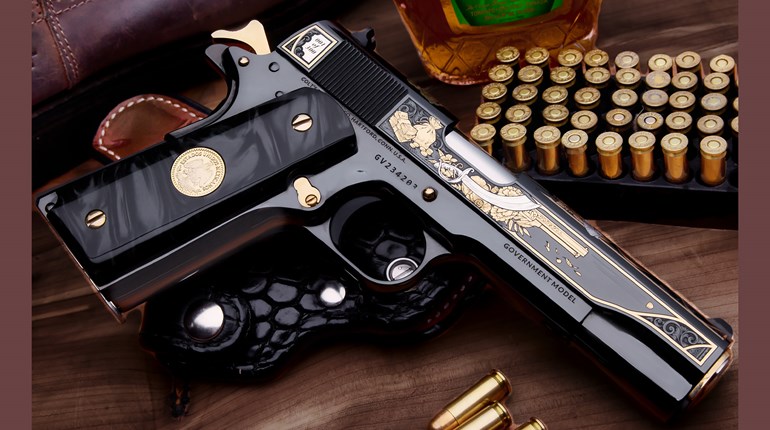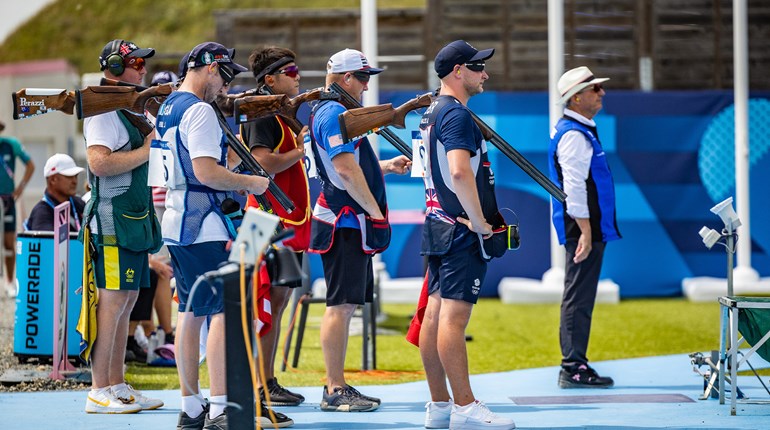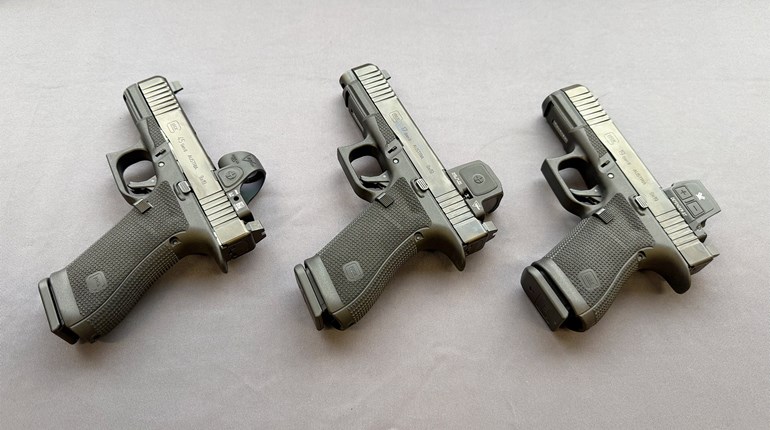
Choosing a handgun is a subtle undertaking, at least the second time. This caveat acknowledges the simple fact that most first choices are at least partial mistakes, if not comparative disasters.
There’s no mystery as to why. As a non-scientific poll recently conducted by WannaMakeABetterChoiceNextTime University of Tristan De Cunha recently revealed, the primary types of new handgun buyers fall into three roughly equal categories—people who (finally) realize they’re on their own for personal or family security, people who realize a phone connection and 911 “triage” takes far longer than most crimes (starting at ~1:07), and people who realize firearms aren’t sentient, and cannot, do not, harm random passers-by—that such actions require a malevolent human being, and not simply a firearm.
In other words, there are bazillions of actual rationales, and categorizing them isn’t all that helpful. Some guidelines, however, can sure save a bunch of dough, and also usher you sooner into the company of happy handgunners. It’s a congenial and growing group.
First, figure out what the primary purpose of your handgun will be. From a Carry Life perspective (duh), this means an appropriate defensive caliber. You won’t research long before you establish that .380 is the reliable minimum for this task, though we’d add a codicil: Unless there are physical factors that essentially enforce this choice, there’s only one pistol we’d recommend essentially without reservation (Browning's “Black Label” .380) in the caliber. Mind, there are several truly excellent defensive .380s; we just don’t see them as “first and only” handguns. Mainly, this is due to size.

Why is size a factor, particularly from the Carry Life perspective? Isn’t smaller better in the sense of weight and bulk for carry? To answer this, we whip out our most emphatic, carefully justified and researched “maybe.”
Such a “maybe” resolves in the form of a little context. Remember this is a first handgun—but with carry as the goal—and therefore has implications about the owner’s handgun prowess. Simply put, the skill level is more likely to be elementary than seasoned, and the perfect smallish (or just plain small) handgun down the line makes acquisition of essential skills more difficult in the present. Manipulation of small controls and short, skinny slides are the most overt examples we see when teaching the basics, but physical mastery of the firearm through the break of the shot and recoil remains demanding. Sound end-to-end mechanics are simply more difficult as size falls and even more so if power/caliber rises. Quite naturally, manipulations like reloading and malfunction clearing are affected too.
Another, ahem, impact occurs when sight radius and shot precision are considered. Those small guns and shorter slides mean that the sights are closer to each other than they would be on a “duty,” “service” or other full-sized handgun. While accuracy can still be fabulous, accessing that accuracy is geometrically delicate because even tiny errors compound more rapidly. Learning to shoot well and correctly—especially under stress—becomes more difficult when you don’t know whether it is sight alignment or grip/trigger press issues that are making your shots go astray.
Finger placement on the trigger is a challenge too, as an extremely literal conception of “length of pull” applies to pistols as well. Small handguns can do some serious damage to good big gun mechanics, up to and including making absurdly poor accuracy commonplace. Whether you adjust, relearn or completely avoid the minis then comes into play.
This gets us back to caliber, albeit in roundabout fashion. Some experienced shooters—particularly instructors—will be screaming at their screens by now, and all of the same chord: “What about rimfire (.22 or similar), you quack!?!?”
They have a point. In terms of learning, one of the best things you can do in the short term is to moderate the sharpness and scale of recoil. This lets a new(er) shooter concentrate on the paramount essentials of trigger press and sight picture, and a huge percentage of very popular and excellent rimfires do this well. Note, however, our reply to these worthies is "that's not without risks too."

Several issues come to mind. Unless you choose very carefully, there are important differences in controls on most “indoctrination” .22s. Not bad in and of themselves, but they add complexity if getting to a carry arm is the goal. Next, folks left too long in rimfire heaven risk wanting to stay there forever: That all-but-nonexistent recoil, soft report and modest cost have their own considerable charms, but they’re unpredictable fight-stoppers. Which is, after all, the entire point.
With luck, we’ve boiled off some options that won’t be helpful in a first Carry Life pistol choice: the remainder are caliber above .380 ACP, and large enough not to put stumbling blocks underfoot in learning essentials of both shooting and the other manipulations essential to safe, effective self-defense. We concede there’s a lot left to talk about, and next time we’ll add some things back in, perhaps even from our spies at the 2017 SHOT Show. The world-beating, best-carry-gun-ever may well await there.
But for now, Carry on.
Editor’s Note: At press time, we’re not quiiiiite sure that Frank didn’t make up that university and study he quotes at the beginning. It seems unlikely that the remotest regularly inhabited place in the world could support a university, or that the British subjects who live there would have constructive impressions about firearms since they can’t, for the most part, own any.


































